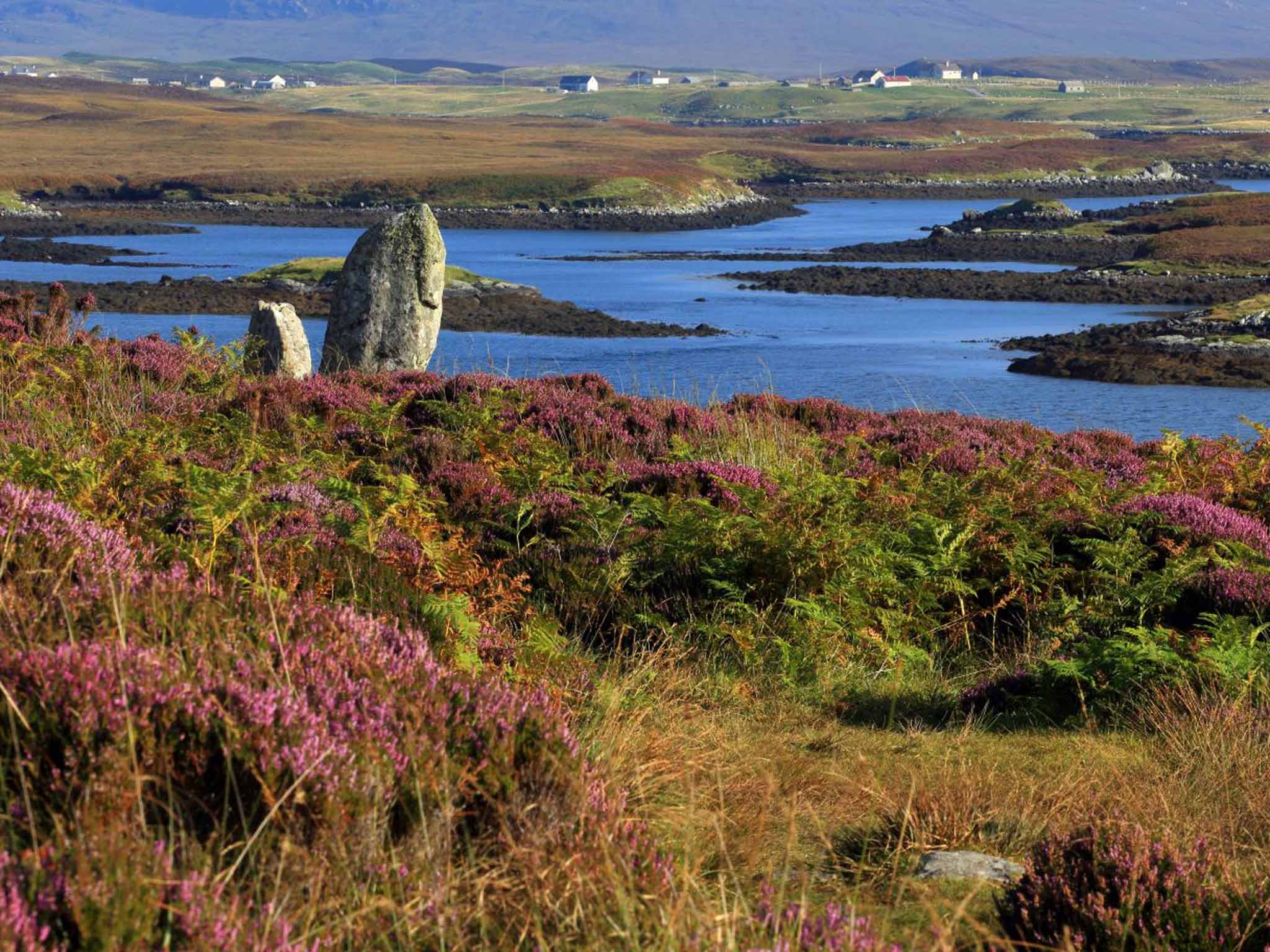The happiest places to live in Britain revealed
Outer Hebrides comes out on top, while Londoners rank among highest for anxiety

The Outer Hebrides is the happiest part of the UK, according to the latest wellbeing analysis released by the Office for National Statistics (ONS).
The data reveals people living on the islands off the west coast of Scotland and in certain districts of Northern Ireland ranked their happiness higher than any other part of the country, while people in London reported having the most anxiety.
The findings – taken from a nationwide survey on wellbeing that has been carried out annually since 2011 – analysed happiness, life satisfaction, sense of worth and anxiety levels across UK regions. This is the first time the ONS has displayed the data through an interactive map providing a breakdown of local areas.
According to the data, people living in the Outer Hebrides and Western Isles are happiest, rating 8.24 out of 10 for happiness.
Mid and East Antrim in Northern Ireland followed close behind with a 8.21 rating, while Newark & Sherwood, Purbeck and Orkney Islands ranked next with happiness ratings of 8.11, 8.06 and 8.05 respectively.
The least happy areas in the UK according to the data are East Northamptonshire, a district that encompasses towns including Thrapston and Rushden, which scored 7.01 for happiness, followed by Fenland, in Cambridgeshire, and Burnley, a market town in Lancashire, with 7.06 and 7.07 out of 10 respectively.
Liverpool, Corby, Wolverhampton and Greenwich all scored 7.08, placing them in joint fourth place for least happiest area of the UK.
When it came to analysing levels of anxiety across the UK, Londoners were revealed to be among the most anxious, rating their anxiety at an average of 3.04 out of 10.
Meanwhile, parts of Northern Ireland were as low as 2.15 and the Outer Hebrides – the happiest area in the UK – one of the lowest at 2.10.
The research, which is part of the larger labour force survey that questioned 158,000 people, asked respondents how satisfied they were with life, to what extent do they felt the things they do in life were worthwhile and how happy and how anxious they felt yesterday. People were asked to respond on a scale of 0 to 10, where 0 is “not at all” and 10 is “completely”.
The survey identified 10 aspects (or domains) of life that people said mattered to their psychological health, including personal well-being, our relationships, our health, the economy and the environment.
Overall, people’s life satisfaction was shown to have improved, but there were no changes in happiness, anxiety and feeling that what they do in life is worthwhile, all areas that have previously seen improvements each year.
Abbie Self, Director of Well-being, Inequalities, Sustainability and Environment at the ONS, said: “Life satisfaction has increased over the past year, which is what one might expect given the improvements seen in the economy and record high employment during that period.
"However, what is more surprising is that there is no change over the same time in people’s happiness, anxiety and feeling that what they do in life is worthwhile. This is the first time we haven’t seen year-on-year improvements in these particular measures since we began collecting the data in 2011.”
The wellbeing survey has been carried out by the ONS annually for the past five years after David Cameron made monitoring well-being one of his flagship policies, saying: “It’s time we admitted that there’s more to life than money and it’s time we focused not just on GDP but on GWB – general wellbeing.”
Join our commenting forum
Join thought-provoking conversations, follow other Independent readers and see their replies
Comments
Bookmark popover
Removed from bookmarks